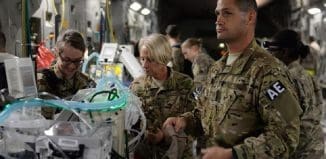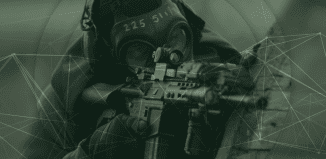Special News Flash From theFuture Forces Conference
This post is also available in:  עברית (Hebrew)
עברית (Hebrew)
Hundreds of participants from Israel and abroad are taking part in a first of its kind conference for Future Forces, taking place in the Israel Air Force Center in Herzlyia right now.
Among the participants are the ministry of defense and chief of police of Fiji, representatives from police forces and special units from around the world, as well as representatives of technological companies dealing with developing systems for future forces. A large number of Israeli companies are presenting their future forces systems. The companies’ representatives talk of a great interest by foreign visitors: “So far I’ve met at least four potential clients for the systems we’re developing, everyone’s surprised by the level of existing technology in Israel and we’re hoping to make good deals.”
The first lecture of the conference was given by major general Zohar Dvir, who was the commander of the anti-terror unit in the years 2001-2007, during which the second Intifada took place, served for ten years as the commander of Golani and was the chief of security for El-Al in Frankfurt. Today he’s the commander of the northern district.
In his lecture, he explained about the role of the anti-terror unit in the cooperation between different security services when information comes in on a terrorist making his way into the country.
Intelligence in Israel is divided to the Shabak (Israel Security Agency), which is in charge of everyday and emergency intelligence, the army – which is the sovereign of occupied territories, and the police – which is in charge of the interior state of Israel.
The information on the terrorist’s movement usually comes from the Shabak, the army blocks and searches, police blocks major traffic routes, as the Shabak thickens the focus – when the primary goal is to stall and prevent the terrorist passing the borders.
The anti-terror unit has the ability to cope with unconventional scenarios. It can also fight, not just get information under unconventional intimidations.
An emergency event triggers a co-operation in order to stop that terrorist. This cooperation has certainly proved itself, as since 2000 in which there were 53 suicide bombings, there’s been a decrease in such scenarios. Starting from 2007, there have been 0 to 1 bombings per year. There also been a dramatic and constant decrease in Israeli casualties from terror events since 2002.
Stay updated on further reports from the Future Forces conference throughout the day.






























